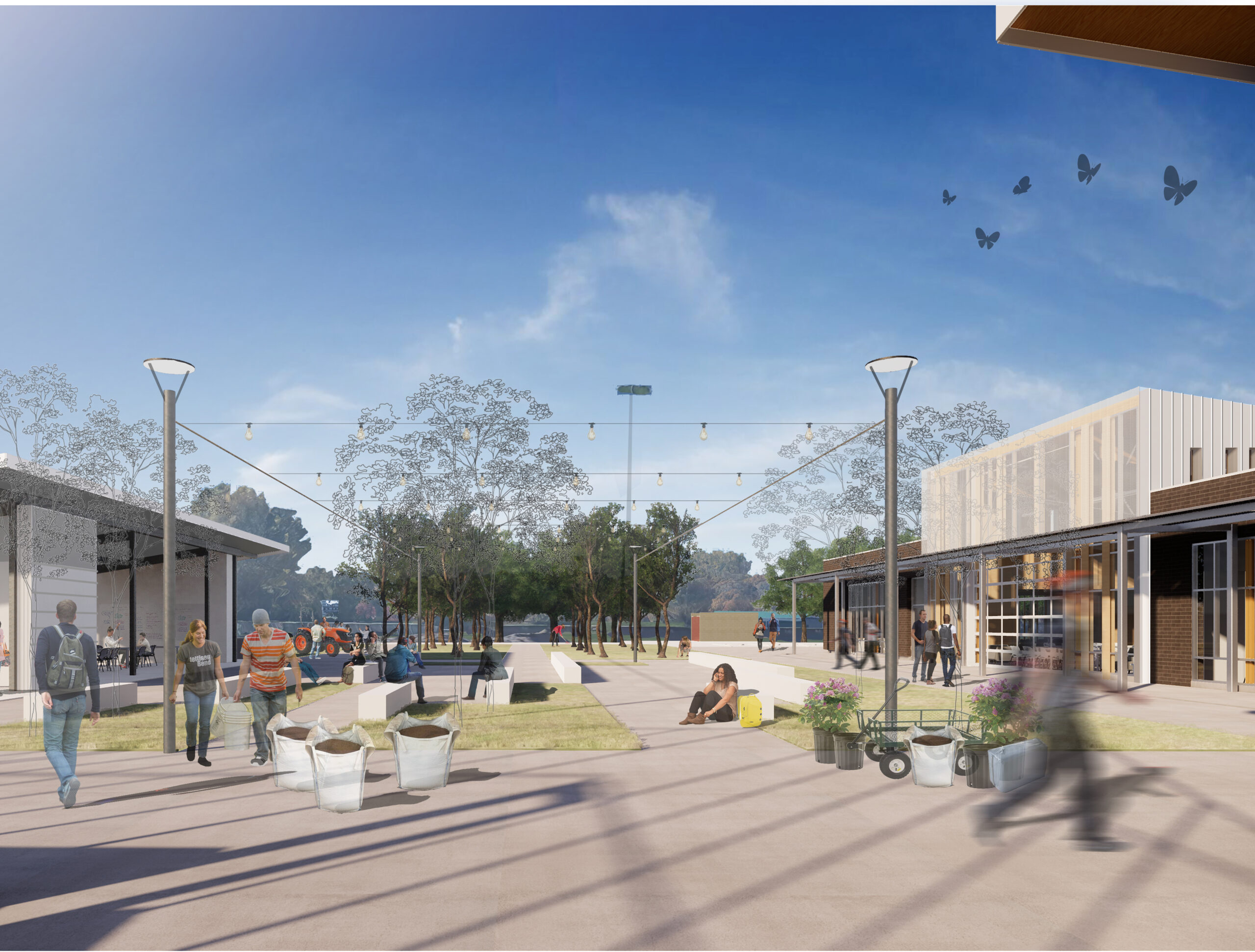With some vision and imagination, a tree that was salvaged from the site of Chemeketa Community College’s Agriculture Complex became an amenity.
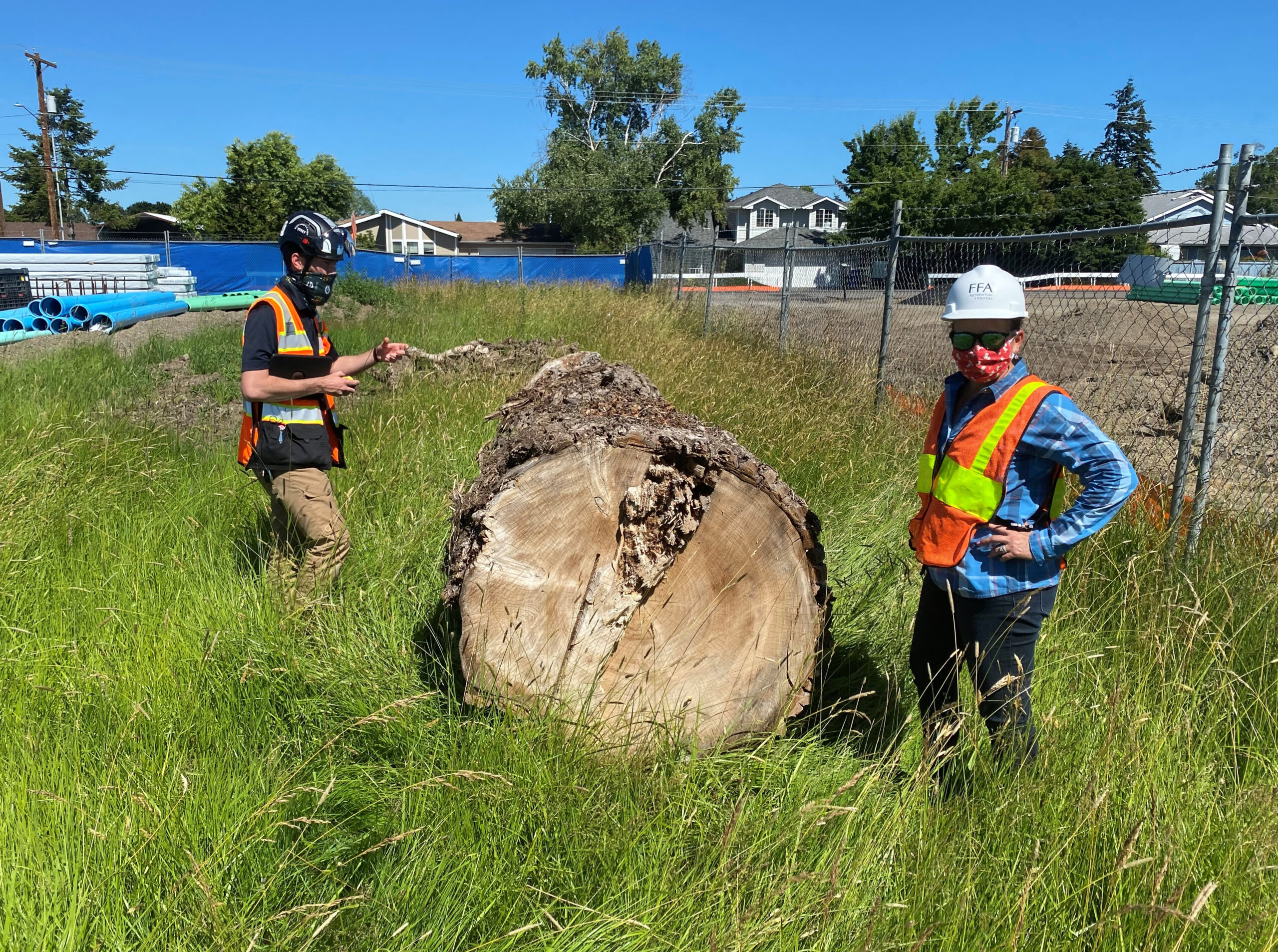
A USELESS LOG BECOMES USEFUL
This giant log (right) at the Chemeketa Agricultural Complex was removed to make way for the new classroom building. Often, salvaged materials from a project site can be sustainably incorporated into the building as artwork or functional components. The challenge with this log is that it is cottonwood, which is rarely thought of as useful timber. It is not as resilient as hardwoods such as oak and maple or even softwoods like Douglas fir and cedar. Despite this, Project Manager and Lead Designer Edward Running still found a way to honor the joy and appreciation for nature the design of the site evokes. The log will be cut into benches and placed near the rain garden, a quiet oasis to serve as an outdoor classroom for students’ group discussions and observation of the changing of seasons. Although not strong enough to provide structural support for a building, these salvaged cottonwood log benches will support students and the site for 10-20 years (see above concept sketch).
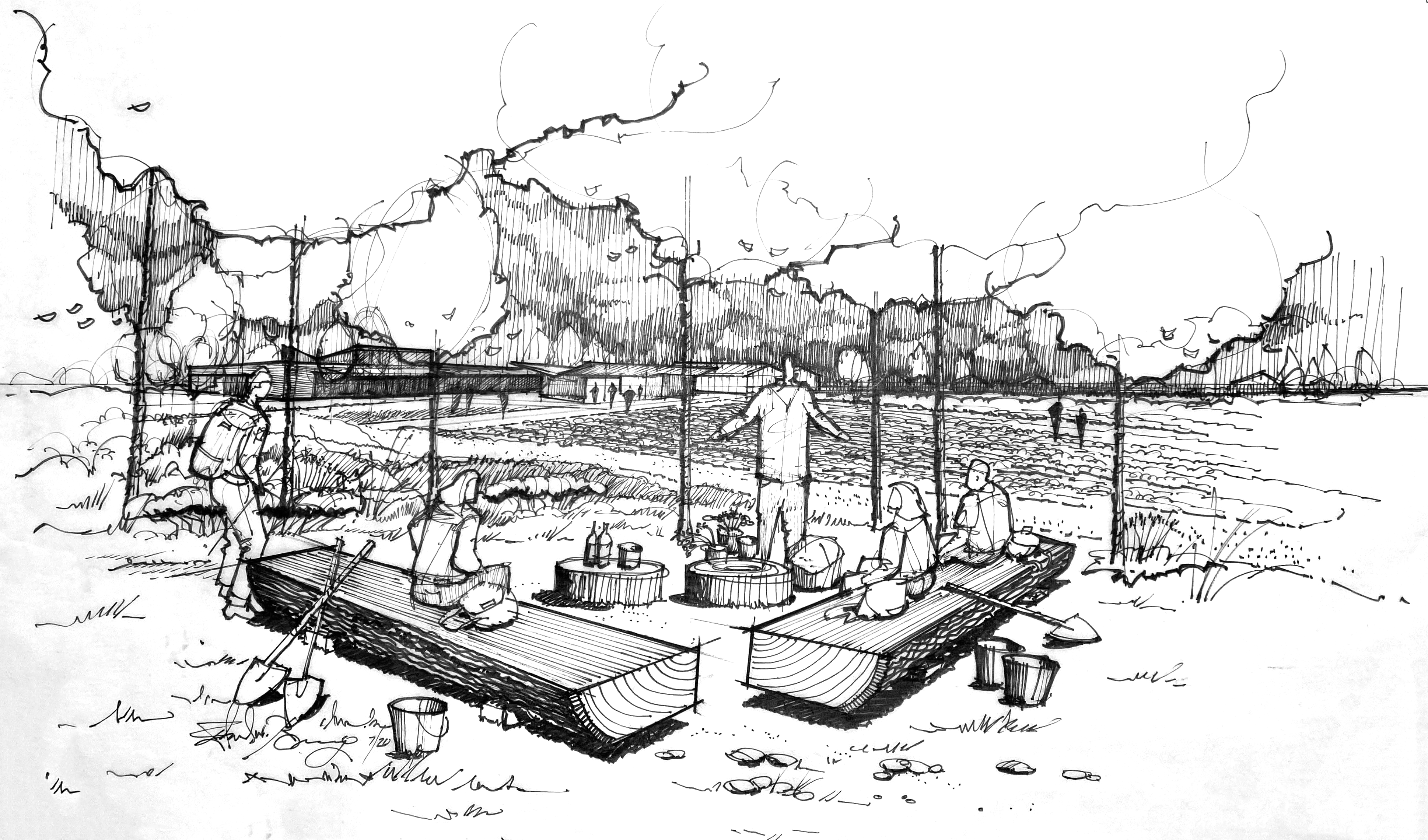
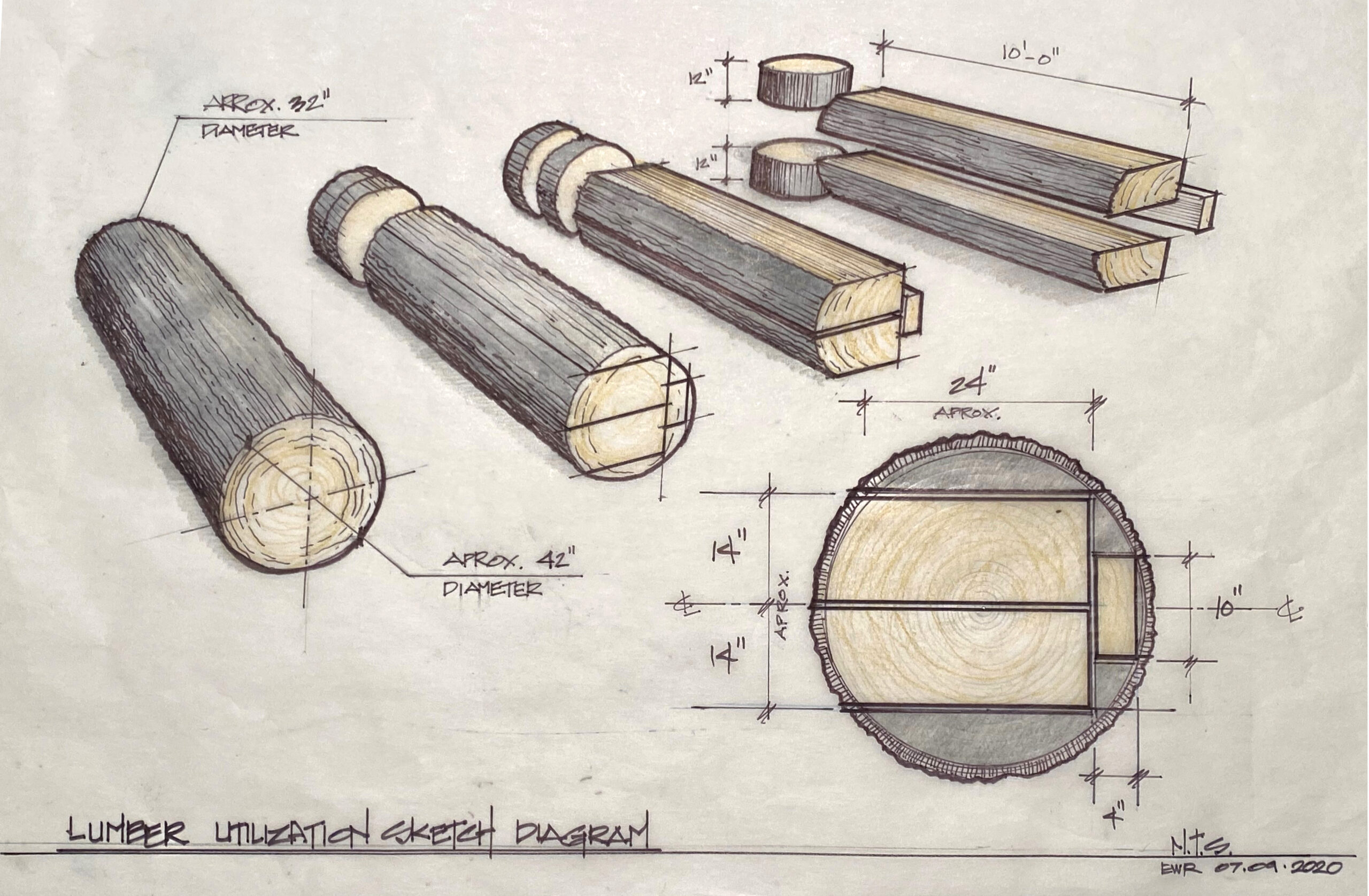
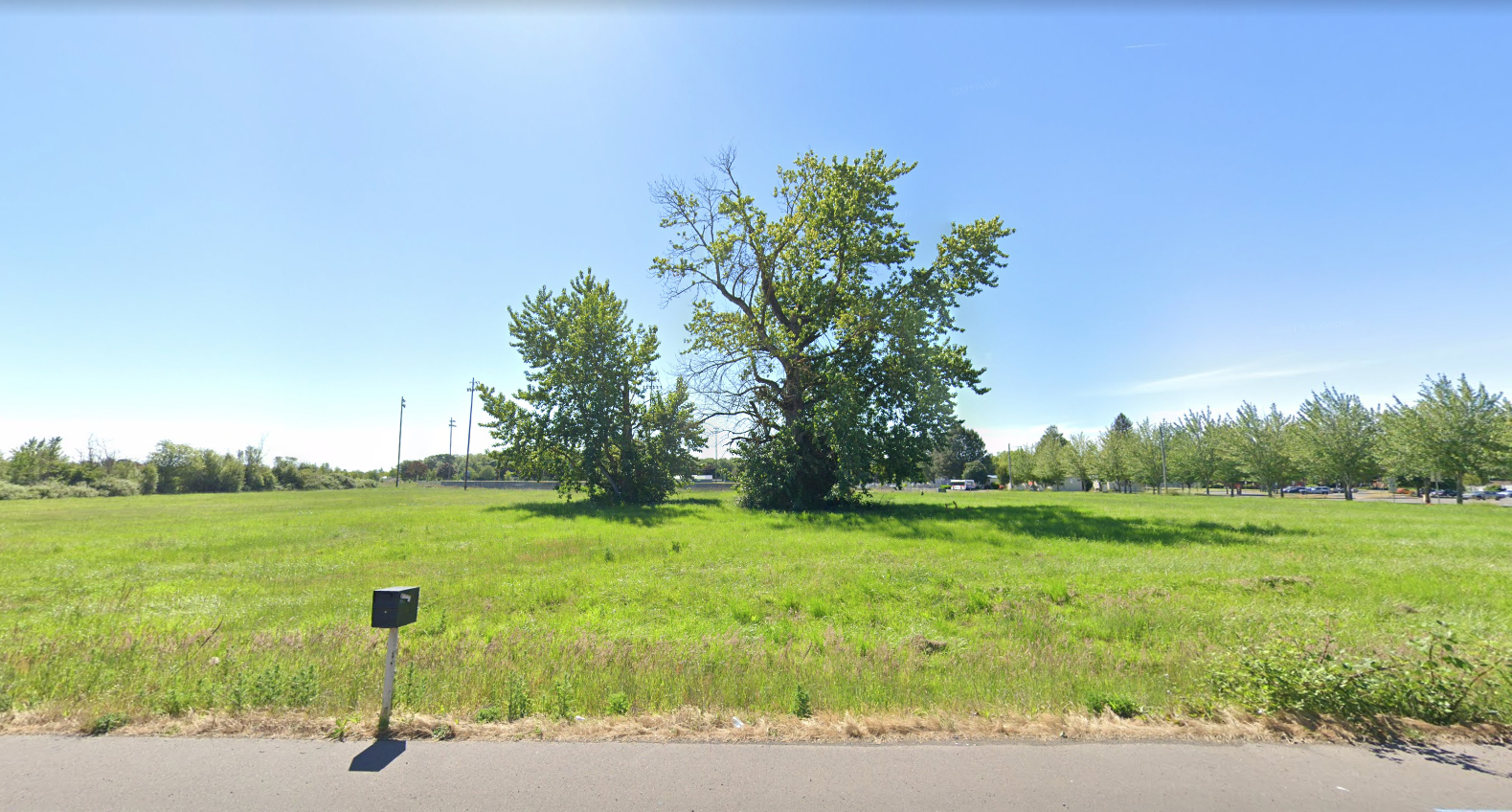
SUSTAINABLE AGRICULTURAL COMPLEX
Designed to be a NetZero building, the Chemeketa Community College Agricultural Complex boasts many green design strategies. It utilizes daylighting strategies of skylights, sunshades, and clerestories to offset energy usage, a high-performance envelope, efficient hydronic heating, and cooling system, mass timber for all structural components, water reclamation measures, and a 90Kw PV to collect all the energy needed to operate the building. Part of what has made this building sing is the design team’s ability to look at every challenge, large or small, through the lens of innovative sustainability and placemaking.
